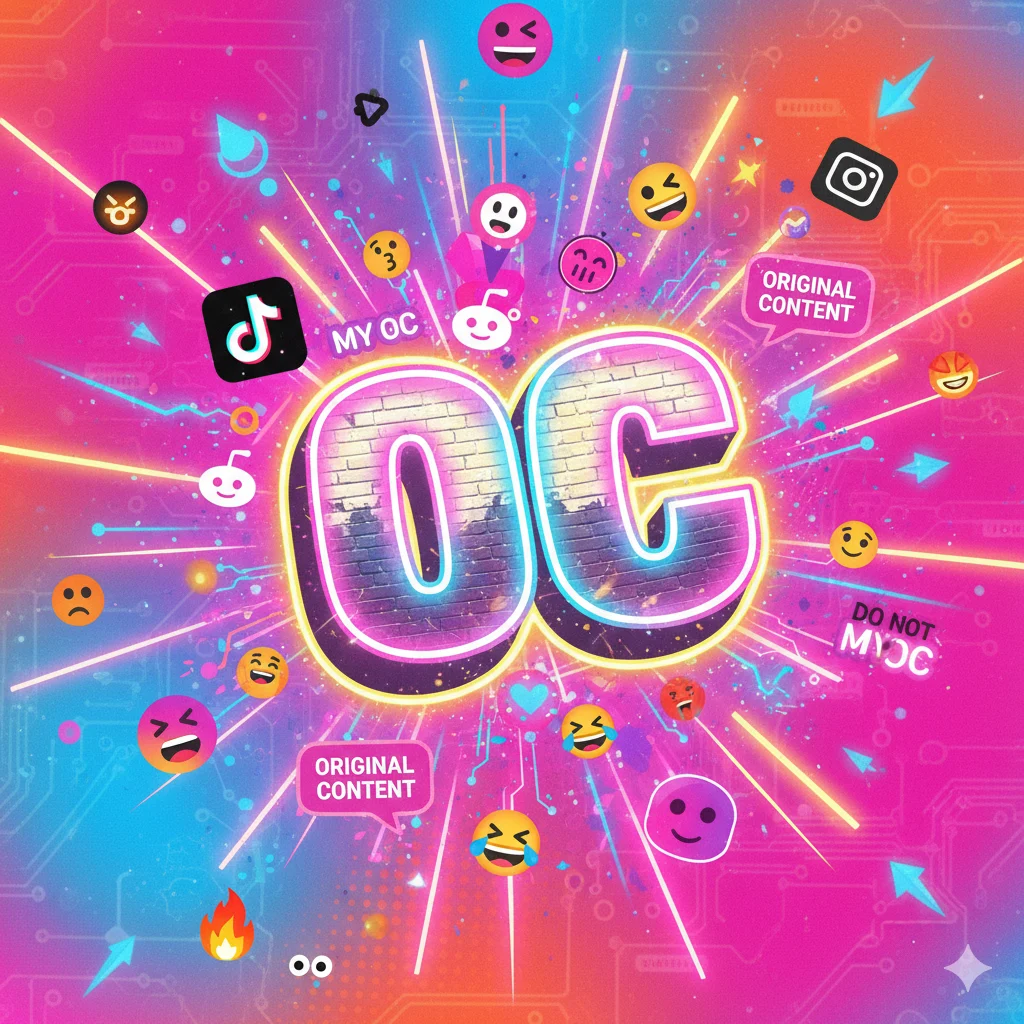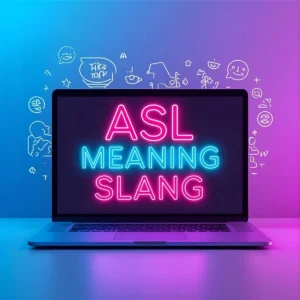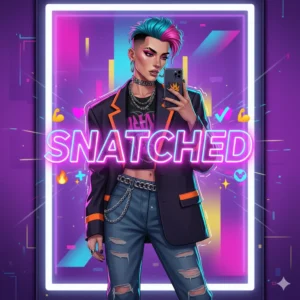In today’s fast-changing online world, slang is evolving faster than ever. Every few weeks, a new abbreviation dominates TikTok captions, Reddit threads, and Instagram memes. One of these highly versatile terms is “OC.”
If you’ve ever scrolled through social media and seen people saying things like “This is my new OC,” or “That video was OC 😂,” you’ve probably wondered — what does it actually mean?
The truth is, “OC” doesn’t have just one meaning. Depending on where you see it, it could mean Original Character, Original Content, Out of Control, or even Overly Confident. The secret lies in the context — and the internet loves a good double meaning.
In this article, we’ll explore the full story behind “OC,” from its origin in online art circles to its wild transformation into everyday slang. You’ll learn what it means, how people use it, where it’s trending, and why it captures the playful creativity of the modern internet.
What Does “OC” Mean in Slang?
“OC” is one of those rare internet abbreviations that can mean different things depending on the situation. Let’s break down its four most common meanings:
- Original Character: Used in fan art, fiction, and gaming to describe a character someone personally created.
- Original Content: Common across meme pages and creative communities to mark unique, self-made posts.
- Out of Control: A fun slang term to describe something crazy, shocking, or hilarious.
- Overly Confident: A playful way to tease someone acting bold or dramatic.
Essentially, “OC” can describe both creativity and chaos — which makes it one of the most flexible pieces of slang online today.
The Origin of “OC” in Online Culture
The first major use of “OC” came from fandom and art communities in the early 2000s. Artists on websites like DeviantArt, Tumblr, and FanFiction.net began tagging their work with “OC” to make it clear that their character was original — not copied from an existing show or story.
For example:
“This is my new OC — she’s a dragon princess from another realm.”
Over time, this label became part of creative identity online. People spent hours developing detailed backstories, relationships, and worlds for their OCs. Entire communities formed around “OC trading,” “OC art collabs,” and “OC aesthetics.”
As memes, humor, and short-form videos took over the web, “OC” expanded beyond art. It became a universal label for originality and individuality — two values central to internet culture.
OC as “Original Character”
When “OC” is used to mean Original Character, it celebrates creativity and imagination. It’s common in anime fandoms, fan fiction, and gaming communities.
Examples include:
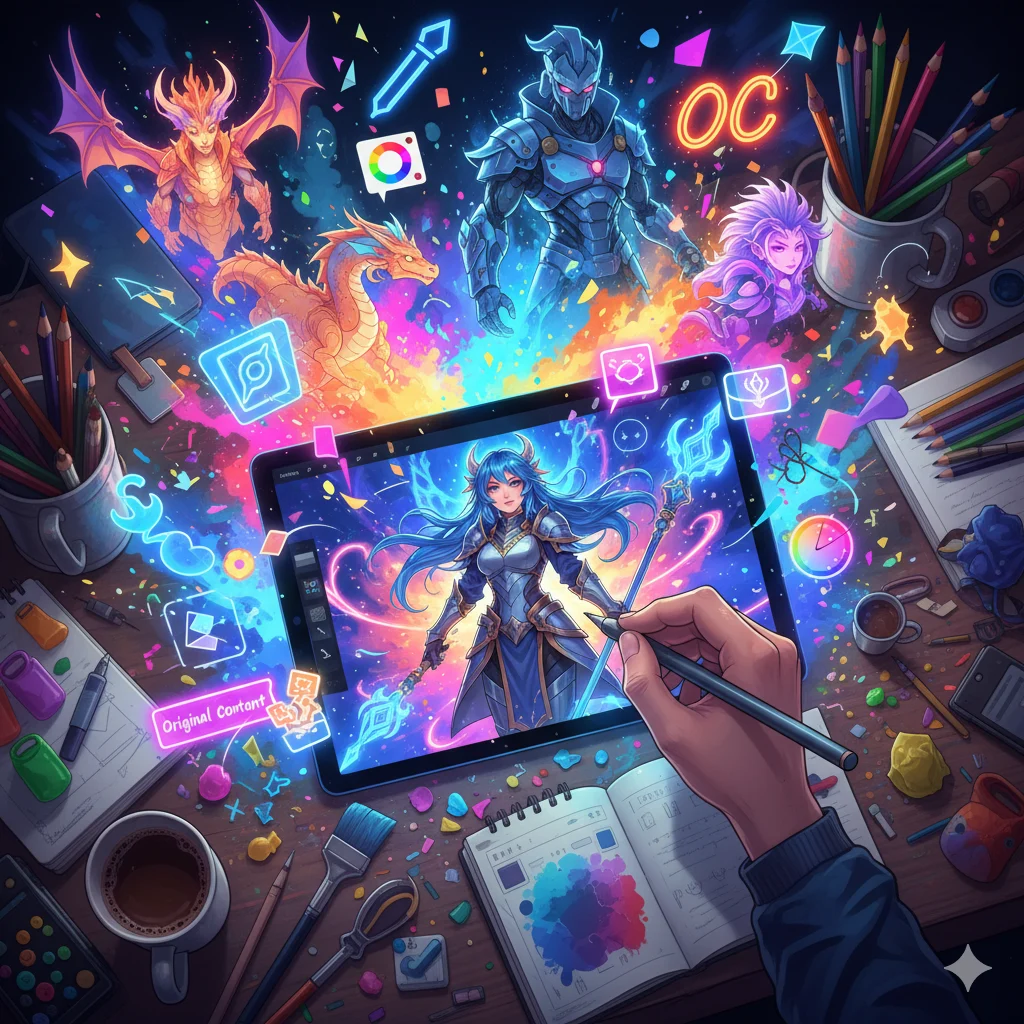
- “This is my OC — he’s a space bounty hunter who loves cats.”
- “Commissioning art for my OC — she finally got a new outfit!”
Creators often treat their OCs like personal avatars or alter egos. Some even build entire universes around them. On platforms like TikTok, YouTube Shorts, and Instagram Reels, artists animate or roleplay as their OCs to showcase their personalities.
For fans, sharing OCs is a way of saying: This is a part of me — but in a creative world I built.
OC as “Original Content”
As social media evolved, “OC” began to stand for Original Content — a tag creators use to show that what they’ve posted is their own work.
You’ll often see captions like:
- “Made this OC meme myself 😭”
- “Please credit the artist, this is their OC.”
In a world filled with reposted memes and recycled videos, labeling something as “OC” adds authenticity. It tells the audience, This is mine, not a copy.
It’s also a badge of pride among content creators. People who post OC memes or videos often gain more credibility — especially in spaces like Reddit, where users value originality over virality.
OC as “Out of Control”
When someone says something or someone is “OC” in a chat or comment, it might mean Out of Control — especially among Gen Z users.
It’s a fun, dramatic way to react to something wild, crazy, or hilarious.
Examples:
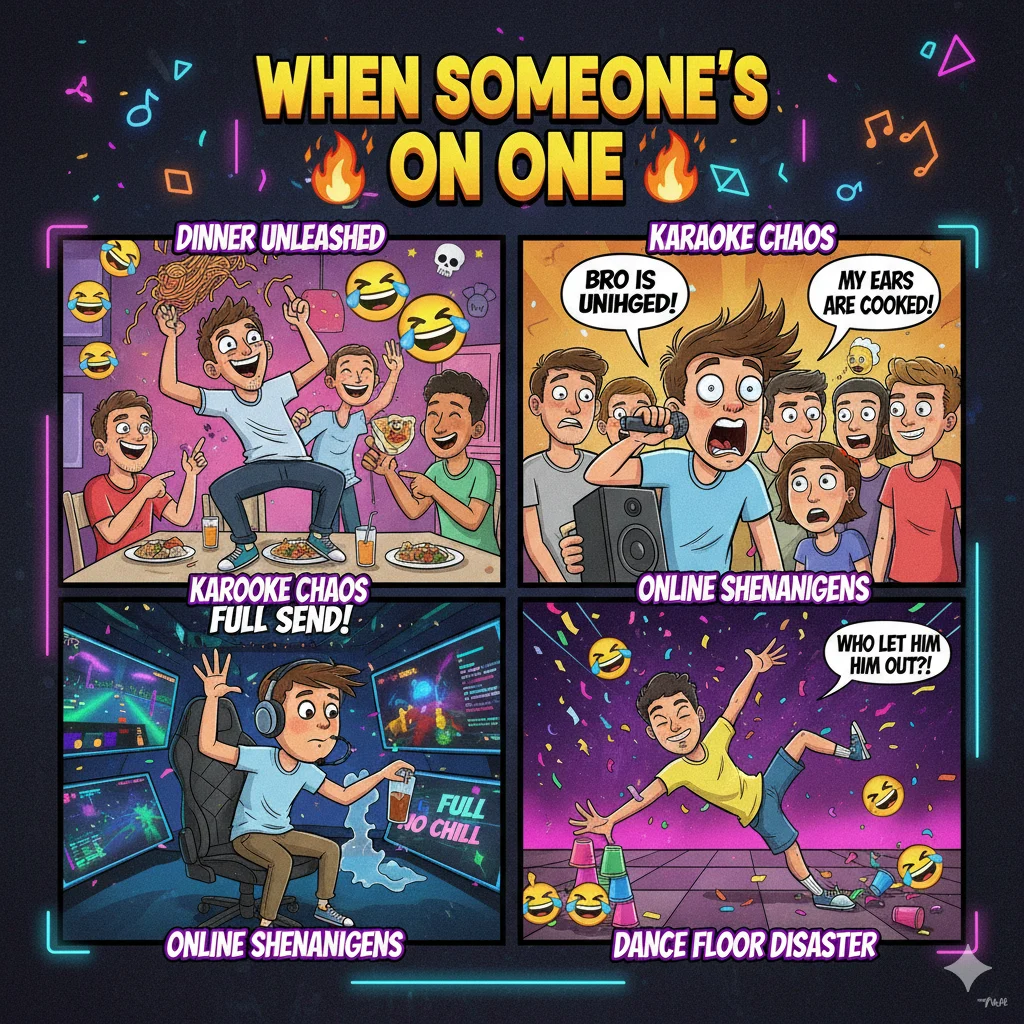
- “That TikTok dance was OC 💀”
- “She went OC at the party last night 😂”
- “This meme is OC — I can’t stop laughing.”
This version of “OC” is full of exaggeration and energy. It turns ordinary reactions into punchy one-liners that fit perfectly into the rhythm of online humor.
OC as “Overly Confident”
Another modern twist of “OC” is Overly Confident.
It’s used when someone acts a little too self-assured, usually in a funny or sarcastic way. Think of it as the internet’s way of saying, “Okay, calm down, hero.”
Examples:
- “He thought he could beat the boss in one hit — man was OC 😭”
- “She walked in OC thinking she owned the gym.”
This use is especially popular on TikTok, where creators pair it with audacious stunts or bold captions. It captures that over-the-top confidence that’s both ridiculous and entertaining.
How the Meaning Changes Across Platforms
Each social media site has its own slang culture, so “OC” can shift meanings depending on where you are:
- TikTok: Often means Out of Control or Overly Confident in funny or dramatic clips.
- Reddit: Primarily means Original Content in meme or story posts.
- DeviantArt / Art Twitter: Refers to Original Character.
- Instagram: Can mean Original Content or Out of Control, depending on captions.
- Discord / Chat apps: Often used jokingly to describe wild or confident behavior.
The best way to tell which meaning someone intends? Look at the tone, emojis, and overall vibe of the post.
Why “OC” Became So Popular
“OC” represents what internet culture values most — creativity, chaos, and personality.
People love short, punchy abbreviations that express emotion or ownership. “OC” fits perfectly into that trend. It’s easy to type, instantly recognizable, and adaptable to countless situations.
It also bridges communities: artists, meme-makers, and casual chatters all use it — even if they mean different things. That universality keeps it alive and relevant.
Funny Examples of “OC” in Everyday Use
Here are a few common ways “OC” appears across platforms:
- “My OC just got fan art! 😭❤️”
- “This is OC, don’t repost.”
- “You went OC with that comeback 😂”
- “OC behavior detected.”
- “We were chill until he got OC on stage 💀”
- “Only OC energy today — no boring vibes.”
Each one shows how the slang adapts to different moods — creative, confident, or chaotic.
Celebrity & Pop Culture References in “OC” Slang
Even celebrities and influencers are part of the “OC” trend. Fans often remix iconic scenes, lines, or moments with “OC” captions for comedic effect.
Examples:
- A clip of Leonardo DiCaprio crawling in The Wolf of Wall Street labeled, “Me walking after leg day — OC edition.”
- Doja Cat fans saying, “She’s so OC for wearing that outfit.”
- Sports memes calling overconfident players “OC energy in human form.”
These pop culture versions make “OC” more relatable and viral. When humor meets familiarity, it spreads faster — turning a simple abbreviation into meme gold.
Psychological Angle: Why We Love “OC” Humor
Why do we enjoy calling things “OC”? Because it captures the internet’s favorite emotional cocktail: confidence, absurdity, and fun.
Humor helps people process awkwardness or exaggeration in a lighthearted way. Calling someone “OC” softens the judgment — it’s teasing, not cruel.
It’s how online culture transforms bold behavior into entertainment.
Similarly, labeling art or memes as “OC” gives people a sense of pride and ownership. It satisfies a basic human desire — to be seen as unique.
In short, “OC” reflects our need to both laugh and stand out online.
The Role of “OC” in Digital Creativity
On a deeper level, “OC” shows how creativity drives digital spaces. Whether it’s art, memes, or slang, people crave originality.

“OC” is like a stamp that says, I made this. It’s mine. It promotes self-expression and authenticity in an internet culture often criticized for copying.
Even when used humorously, it celebrates creativity — whether through jokes, drawings, or videos. It reminds us that the internet’s best moments come from people daring to be different.
The Balance Between Humor and Sensitivity
Because “OC” has so many meanings, it’s usually harmless. However, some people might misinterpret it. For example, calling someone “OC” as “Overly Confident” could sound mocking if said harshly.
That’s why context matters. Most users use “OC” playfully — not to insult. The key is tone. Online slang thrives on exaggeration, but the best jokes are still kind-hearted.
The Cultural Impact of “OC” Slang
Like many viral abbreviations, “OC” has evolved into a cultural symbol. It represents how digital communication blends creativity, humor, and individuality.
It’s not just an abbreviation — it’s an expression of how people connect and define themselves online. From artists designing characters to meme creators claiming originality, “OC” celebrates the power of being authentic in a world full of copies.
It also shows how internet users turn language into art. Two simple letters — “O” and “C” — now carry layers of emotion, context, and cultural meaning.
FAQs About “OC” Meaning in Slang
Q1: What does “OC” stand for in texting?
It can mean “Out of Control,” “Overly Confident,” or “Original Content,” depending on the tone and context.
Q2: What does “OC” mean in art?
In creative spaces, it means “Original Character” — a unique character invented by the artist.
Q3: How is “OC” different from “OG”?
“OG” means “Original Gangster” or authentic/traditional. “OC” usually refers to creativity or behavior.
Q4: Where is “OC” most used?
It’s popular on TikTok, Reddit, and art communities like DeviantArt or Tumblr.
Q5: Can I call my memes OC?
Absolutely! If you made it yourself, tag it as “OC” to show it’s original.
Conclusion: The Many Faces of “OC”
“OC” is more than internet slang — it’s a symbol of modern creativity and humor. From original characters to out-of-control moments, it perfectly captures the spirit of online expression.
It reminds us that the internet is a space for both originality and laughter — where people can be confident, creative, and even a little chaotic.
So, the next time someone says something is “OC,” take a closer look. They might be praising a masterpiece, laughing at a wild video, or teasing a friend who’s a bit too bold. Either way, it’s a reminder that slang, like creativity itself, is always evolving.


